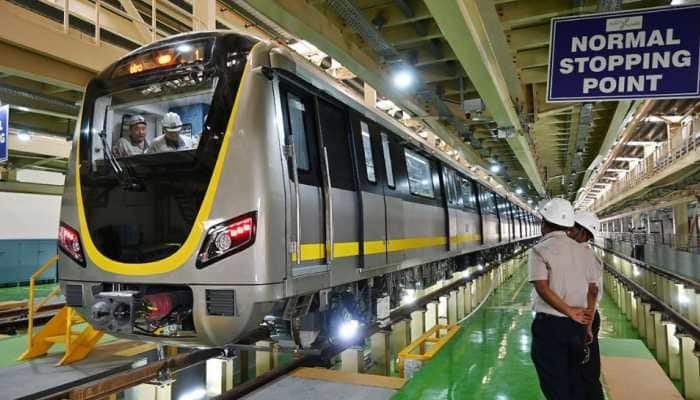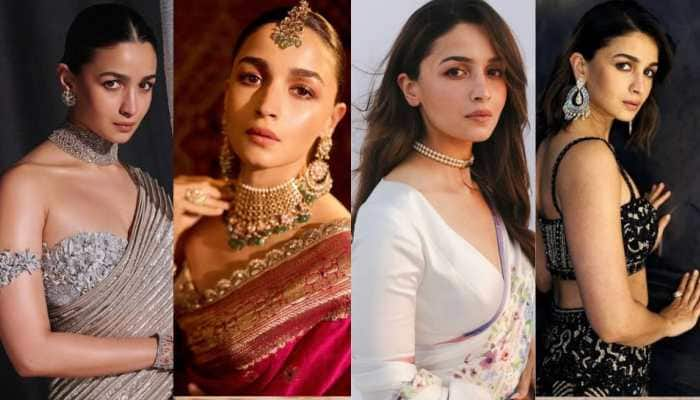Delhi`s tryst with “parampara” in Hindustani classical music
The "parampara" (generational) tradition in classical music is alive and flourishing.
Trending Photos
)
New Delhi: The "parampara" (generational) tradition in classical music is alive and flourishing. The capital was witness to this when sitar maestro Imrat Khan, brother of legendary exponent Vilayat Khan of the Imdadkhani (Etawah) gharana, introduced his youngest son, Azmat Ali Khan, to the audience here as the newset prodigy of the Khan brood at the ongoing five-day Delhi Classical Music Festival.
The Imdadkhani gharana of sitar and surbahar music dates back 400 years to the Mughal court in Agra.
Eight-year-old Azmat is the son of the Imrat Khan`s American wife Melinda and the youngest of his five sons - the others being Nishat, Irshad, Wajahat and Shafaatullah - all of whom are accomplished international musicians in the family gharana.
"It is my duty to teach my sons the music we have played for generations and have given to the world. God gave me another son in St Louis (in US where the maestro is now based) and I devote all my time to teach him despite my failing health. Like all his brothers, the boy shows promise. I cannot abandon my responsibility as a father," Imrat Khan said.
Azmat played raga Jhinjhoti, a deviation of the Khamaja family of ragas, to a packed hall Tuesday at the Kamani theatre in the capital that is hosting the five-day classical music jamboree. The playful child who drawls on his "r" and "s", tackled a sitar that towered way above his two-foot frame with ease, plucking the same melliflous notes as his father`s despite a few nervous misses.
After the recital, Azmat was cornered into giving his first interviews to the Indian press.
He said he had been learning the sitar and surbahar - two instruments that his father commands at will - since the age of three. "I practise for a couple of hours everyday under my father`s tutelage. I just love doing it. I don`t have fixed hours for `taalim`," the third-grader said.
The little "ustaad", however, prefers the complicated surbahar and its basic sound to that of the sitar. He plays both the instruments. "But it is a hard choice to say which one I like better...Preferably the surbahar," he drawled.
His fingers hurt after long hours of strumming the strings. "But I have to do it," Azmat said.
"Most of my friends in school are musicians. My best friend is a pianist," Azmat told IANS. "We have played together at the gym and in the msuic class."
Azmat hopes to make it big in India because it feels like home. "Things are different out here...It feels nice ," he said. This is Azmat`s third trip to India.
Dressed in a black embroidered kurta, a white pyjama and a skull cap, he looked a miniature of his father`s genial self.
Classical music has been seeing a comeback among the younger generations in the country in the last 10 years, Hindustani vocalist Venktesh Kumar said.
"Young listeners and musicians are tired of western music and its contemporary Indian versions. The fatigue has set in. They have seen all and now crave for shastriya sangeet. The audience for classical music has been growing," Kumar told IANS.
Kumar`s rendition of dhrupad and devotional classical vocals held the audience, including Delhi chief minister Sheila Dikshit, under a spell.
The classical music festival, which opened Oct 1 with vocals by Wasifuddin Dagar (dhrupad) and Shiv Kumar Sharma (santoor), is playing host to classical heavyweights like Savita Devi, Daya Shankar, Rajan-Sajan Mishra, Vinayak Torvi, Shujaat Khan, Abdul Rashid Khan and Pandit Jasraj over five days.
It has been put together by the Delhi government and the Punjabi Academy.
IANS
Stay informed on all the latest news, real-time breaking news updates, and follow all the important headlines in india news and world News on Zee News.
Advertisement
Live Tv
Advertisement







)
)
)
)
)
)
)
)
)
)
